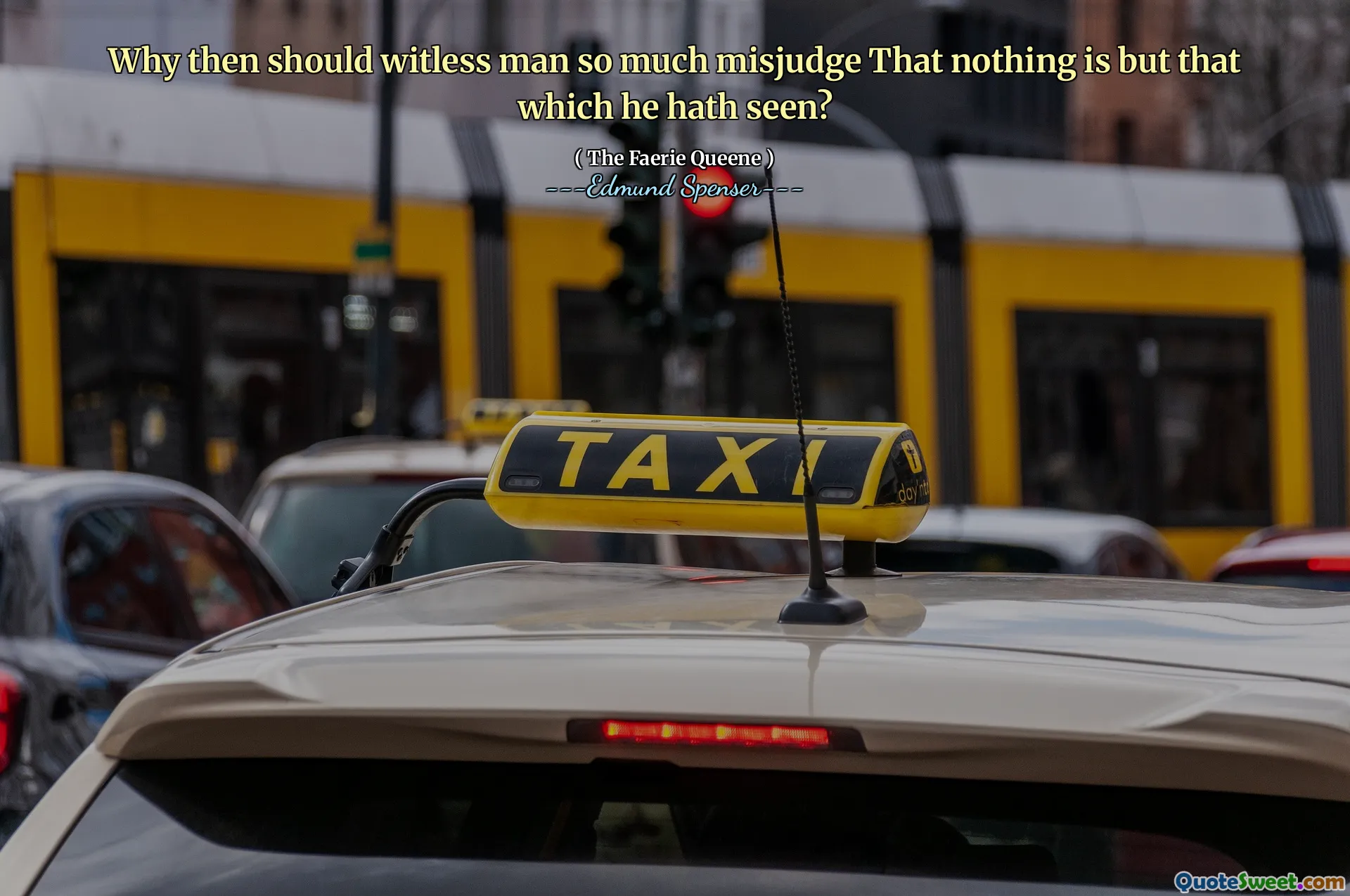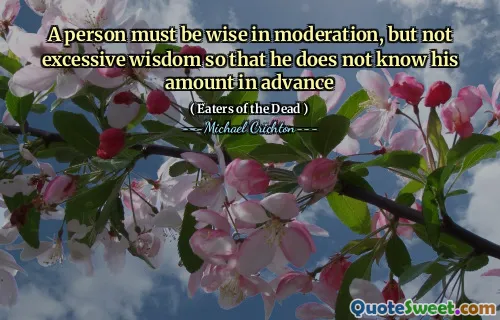
Why then should witless man so much misjudge That nothing is but that which he hath seen?
This quote prompts us to reflect on the nature of human perception and understanding. It suggests that often, people tend to underestimate the limitations of their own experience and knowledge. Humans can be inherently egocentric, placing heavy reliance on their personal sight and senses as the ultimate arbiters of reality. This can lead to a narrow-minded worldview where only what can be directly observed is considered true, dismissing the existence or significance of phenomena beyond immediate perception. The poet seems to question the wisdom in such a limited viewpoint, pointing out that true understanding requires humility—acknowledging that our senses are fallible and that there is much beyond our reach. This can be particularly relevant in the context of seeking truth or knowledge, emphasizing the importance of curiosity, critical thinking, and open-mindedness. It raises an awareness that human perception is but a fragment of the whole truth. Throughout history, philosophical and scientific pursuits have demonstrated that reality is often more complex than our senses reveal—a reminder that wisdom involves recognizing the boundaries of our perception and being willing to explore beyond them. This idea encourages humility in our judgments and invites us to embrace the vast unknown that lies beyond our immediate sight. Ultimately, it pushes us toward a thoughtful acknowledgment of our limited perspectives, prompting a humility that is essential for genuine understanding and growth.






